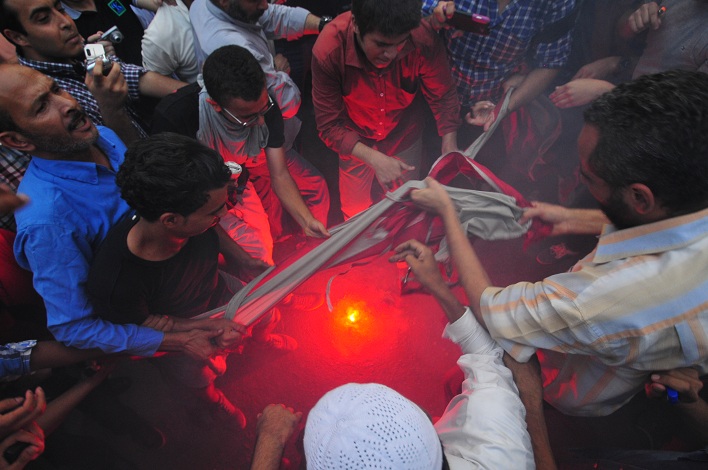CAIRO: One of the biggest challenges Arab graduates of international educational institutions face is applying the concepts and theories they learned to the local market of their developing countries.
Under the slogan “Bridging the gap between theory and practice, Hisham El Khazindar, managing director of Citadel Capital, partnered with management professors Ahmed Tolba and Eskander Tooma to found El Khazindar Business Research and Case Center (KCC) at the American University in Cairo (AUC).
“Our objectives are to train people to develop and write case studies, promote the use of case studies in classrooms and integrate regional industries in academia, said Tolba, management professor at AUC.
KCC will primarily develop and publish case studies on companies operating in the Middle East and North Africa. However, they plan to expand their activities to hosting conferences where cases will be presented and discussions will center on current management issues in the region.
The center also plans to offer seminars to train faculty in case development and usage in the classroom, offer workshops to train students in case analysis and get them close to leading practitioners. They will also produce a case journal in management.
Tolba explains that the majority of the case studies in university textbooks are foreign and do not reflect the practical realities faced in Egypt and the Middle East. In addition, usually the students haven’t heard of the company which makes the case irrelevant and boring for them.
“I used to use a lot of case studies from Proctor and Gamble Egypt and students got really excited so it was clear that people want to see local content used inside the classroom, he explains.
“I strongly believe in case teaching and having applications rather than theory, Tolba added.
They aim to have 20 case studies published by the end of 2009, which will be written by more than seven professors, at least two of which must be non-AUCians. Their goal is to have 50 percent of these cases used in classrooms at more than three universities in more than one country in the region. In addition, the case studies should cover more than 70 percent of the various management subjects.
An advocate of improving education in Egypt specifically and in the Middle East and North Africa in general, Hisham El Khizindar donated $250,000 to establish the center. The money will be given over a period of five years, $50,000 annually.
To generate case studies with local content, the center had to first teach professors in the region how to conduct and write case studies, and to do so, they are holding a series of workshops for management professors. So far, more than 24 professors from universities around Egypt joined the workshops.
“The research center will [generate] case studies based on the Egyptian culture instead of foreign cultures, which will enhance the students’ understanding of the local market, Elham Metwally, management professor at Modern Science and Arts University (MSA) and one of the people who participated in the workshops, told Daily News Egypt.
The workshops, funded by Bearing Point Management and Technology Consultants, began since last May. The first focused on “teaching the case method, basics of writing a case and data collection. The second, held last Saturday, trained participants to “organize data collected and write the case. The last workshop, scheduled to take place in November, will be titled “presenting the case to colleagues for critique and refining the case for publication.
The workshops are given by Tarek Hatem, associate dean of executive education at the Dubai School of Government and professor of strategic management at AUC.
The center is expecting to have 11 case studies ready for publication from the participating professors after the workshops.
“The case method is the most effective and interesting way to teach business concepts, Hatem said, and it allows students to get a feel for the pressures and decisions that managers confront in the real world of doing business.
“This makes the educational experience far more practical than the old way of memorizing the theory or facts in the book, he added in a statement.
The center’s vision is to become the leading case development center in the Middle East and the primary link between academic research and practical applications.



